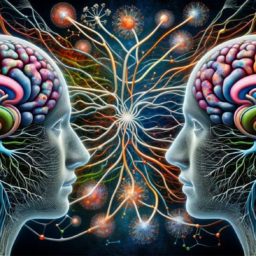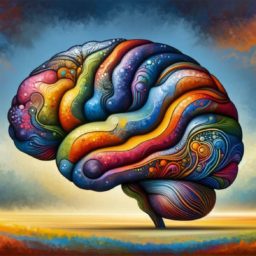
video player The Future of Reasoning | Michael Stevens Posts where this video is embedded The Argumentative Theory of Human Reason We did not evolve to reason individually but to reason sociallyBooks: Michael Stevens, Dan Sperber, Hugo MercierThe Future of Reasoning Michael StevensVideos: Michael Stevens, Dan Sperber, Hugo MercierThe Future of Reasoning Michael StevensTags: confirmation bias … Continue reading The Future of Reasoning Michael Stevens

Over many years of elementary school, high school, and even college and graduate school, we’re never explicitly taught to think outside the brain; we’re not shown how to employ our bodies and spaces and relationships in the service of intelligent thought. Yet this instruction is available if we know where to look; our teachers are … Continue reading The Extended Mind: the Power of Thinking Outside the Brain by Annie Murphy Paul (2021)

Communication involves both speaking and listening. Traditional research has studied these processes separately within individual brains. This study examines brain activity in speakers and listeners during natural conversation, revealing coupled neural responses that correlate with effective communication. Abstract Verbal communication is a joint activity; however, speech production and comprehension have primarily been analyzed as independent … Continue reading Speaker-listener Neural Coupling Underlies Successful Communication Greg J. Stephens, Lauren J. Silbert, and Uri Hasson (2010)

Mirror Neurons Mirror Neurons and Interbrain Synchrony Enhancing Conversation ** Close Pop-up all posts in this chapter What’s the Vibe? Please be patient as this may take up to a minute to load… Close Interbrain synchrony occurs when neural activities align between people during social interactions. Understanding this phenomenon can improve communication, teamwork, and learning. … Continue reading Interbrain Synchrony When neural activities align between people during social interactions

Knowledge and Information ** The Knowledge Delusion Close Pop-up all posts in this chapter What’s the Vibe? Please be patient as this may take up to a minute to load… Close The argumentative theory of reasoning proposes that reason did not evolve to help us to reason individually but to reason together – in other … Continue reading The Argumentative Theory of Human Reason We did not evolve to reason individually but to reason socially


Knowledge Is Communal Opinion Polarization Close Pop-up all posts in this chapter What’s the Vibe? Please be patient as this may take up to a minute to load… Close Knowledge and cognition extend beyond our brains, involving people and objects around us. This distributed cognition means our thinking and decision-making are influenced by external factors. … Continue reading The Extended Mind The power of distributed cognition







